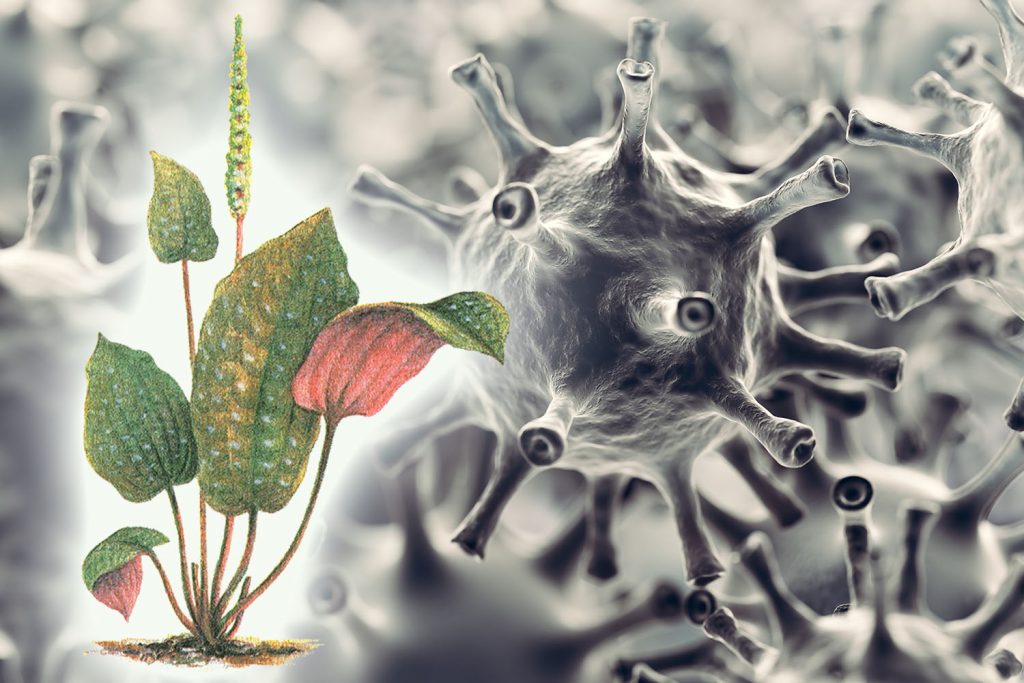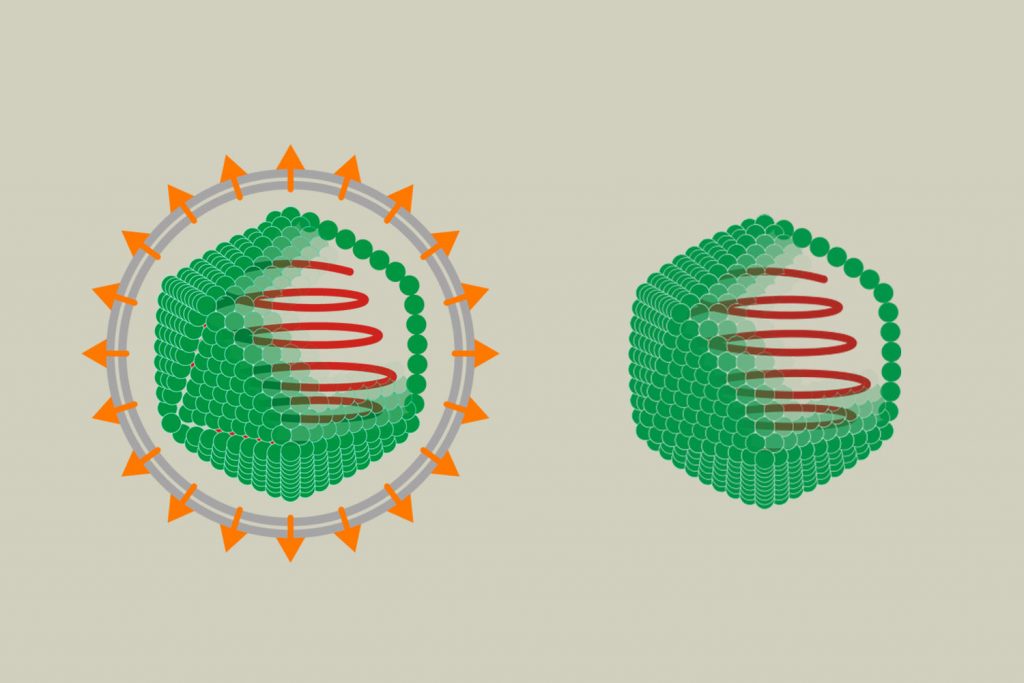09 Dec Antiviral activity of essential oils

Viral diseases are of great concern to human and animal health, but unfortunately antiviral drugs are hard to develop: as viruses cannot replicate independently because they need to enter the cell of the host, an antiviral that interferes with the life cycle of the virus it is likely to be toxic to the cells of the host. This explains the growing interest in studying the antiviral properties of essential oils.
Tea tree, bergamot, oregano, clove, lavender, eucalyptus, lemon balm and pine are among the most studied antiviral essential oils, while the constituents with best antiviral activity are thymol, carvacrol, eugenol, 1,8 cineol, pulegone, terpinene-4-ol, pinene, and thujone, among others.
The antiviral activity of essential oils has been demonstrated:
- In vitro, in liquid medium, where an essential oil dissolved in a liquid is put in contact with a viral culture.
- In vitro, in vapor medium, where viral cultures are exposed to vapors of essential oils. These assays have demonstrated the effect of the essential oils on the external proteins of the viruses. Complete virus elimination has been achieved after 5-15 minutes of exposure to the aerosols of certain essential oils.
- In vivo, in farm animals, administered by drinking water or by inhalation, achieving lower mortality, better productive parameters, less shedding of viral particles, fewer clinical signs, and better scores of postmortem lesions.
Effectiveness of essential oils on enveloped and non-enveloped virus
Viruses can be divided into two main categories; enveloped viruses, which have a protective layer that derives from the host’s cell membrane; and non-enveloped (or naked) viruses.
Both types of viruses share the same main steps to enter into the host’s cell and a similar life cycle.

Enveloped and non-enveloped virus.
Envelope (grey and orange) and capside (green)
Adapted from Nossedotti (Anderson Brito), via Wikimedia Commons
Activity of essential oils on enveloped viruses
The main mechanisms of antiviral effects of essential oils on enveloped viruses are the following (Jürgen Reichling, 2021):
- Direct antiviral effect when the viruses are outside the host’s cells, either in liquid medium or aerosols
- Disruption of the envelope
- Inhibition of the entry into the host’s cells
- Inhibition of the virus replication and/or other viral activities inside the cell
- Antioxidant effect that reduces viral titers
- Anti-inflammatory effect in virus-infected tissues
Certain essential oils have been proven to be effective against the following enveloped viruses relevant to animal farming: Bovine Viral Diarrhea Virus, African Swine Fever Virus, Classical Swine Fever Virus, Aujeszky virus, Avian Influenza Virus, Newcastle Disease Virus, Infectious Bronchitis Virus.
Activity of essential oils on non-enveloped viruses
Up to now, there is less research about the effects of essential oils on naked viruses that affect farm animals. There are some investigations that prove the effectiveness of essential oils against human enteroviruses, that maybe could be applied to animal enteroviruses such as Bovine Enterovirus and Porcine enterovirus.
The main mechanisms of antiviral effects of essential oils on non-enveloped viruses are the following (Jürgen Reichling, 2021):
- Direct antiviral effect when the viruses are outside the host’s cells, either in liquid medium or aerosols
- Disruption of the capsid and degradation of the nucleic material
- Inhibition of the entry into the host’s cells
- Inhibition of the virus replication and/or other viral activity inside the cell
- Antioxidant effect that reduces viral titers
- Anti-inflammatory effect in virus-infected tissues
Use of essential oils as antivirals in farm animals
Viral diseases entail great losses to the poultry and livestock industry, may spread fast in the flock and reduce productivity and profits. Besides, viruses damage the defense system of the host and open the door to secondary infections. Therefore, the fight against viral diseases must rely on effective biosecurity and vaccination programs and on keeping the animals healthy and well-nourished to maintain a strong immune system.
Given the complexity of viral infections and the possible presence of secondary pathogens, in practice, in many cases essential oils cannot be relied on as a sole treatment against viral diseases.
Instead, essential oils can be used in prevention programs, as they strengthen the animal’s defense system. Besides, their antiviral action is more effective prior to virus entry and attachment, when the virus is outside the cells, so essential oils can prevent the spread of the disease in the flock.
In flocks with ongoing viral diseases, essential oils are a complement to conventional treatments, will help to decrease the viral shedding and will speed recovery up, thanks to their antimicrobial, immune boosting, anti-inflammatory and antioxidant activities.
Products of choice
PlusBreathe© contains essential oils with natural antiseptic, antioxidant, expectorant and mucolytic activity. It has a refreshing taste.
It is indicated to improve the functioning of the respiratory system and to mitigate heat stress in birds, ruminants, pigs and rabbits of all ages. It can also be nebulized in the farm environment.
DigestoCid© is indicated as an acidifier, sanitizer of drinking water and to improve intestinal health in poultry and pigs of all ages. It contains:
- Buffered organic acids, which reduce the pH of the water and inhibit the growth of Gram-negative bacteria.
- Monoester fatty acids, also called medium chain fatty acids, which inhibit the growth of Gram-negative and Gram-positive bacteria. In addition, they have antiviral effects.
- Essential oils and phytochemicals with antibacterial, antifungal, antiviral and antioxidant properties.
DigestoCid© has a broader spectrum of action than products based solely on organic acids, allowing superior antibacterial and antifungal efficacy at a less acidic pH (5.5-6.5).

Certain health statements may not be applicable in your region.

